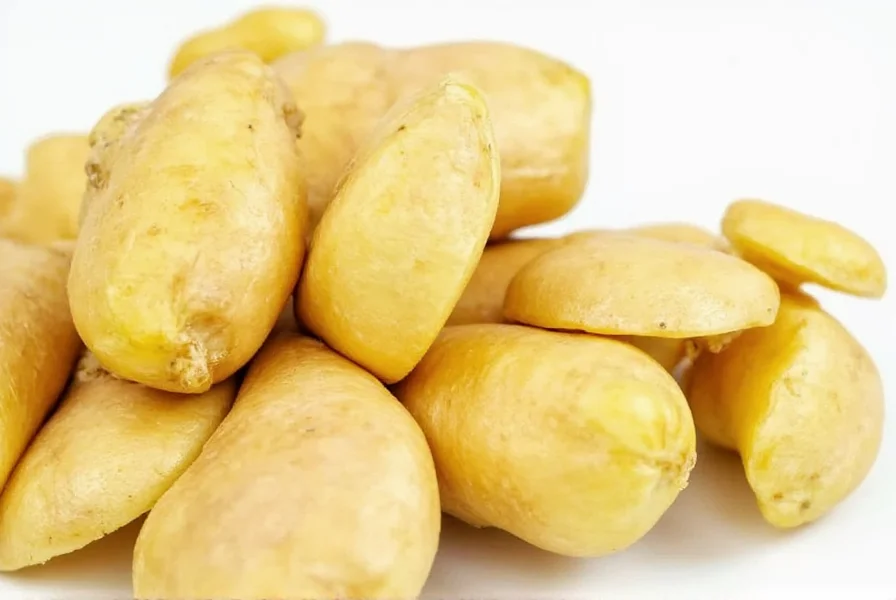Proper storage of raw ginger significantly extends its shelf life while maintaining flavor and texture. Whether you've bought a large quantity at the market or have leftover ginger from cooking, understanding the science behind ginger preservation helps prevent waste and ensures you always have this versatile root available for your culinary creations.
Why Proper Ginger Storage Matters
Ginger root contains high moisture content (approximately 80%), making it susceptible to mold growth and dehydration. When stored incorrectly, ginger develops soft spots, becomes fibrous, or grows mold within days. Effective storage methods maintain ginger's pungent flavor compounds while preventing spoilage through controlled humidity and temperature.
Refrigeration: The Standard Storage Method
Refrigeration provides the optimal balance of temperature and humidity for short-to-medium term ginger storage:
- Keep ginger unpeeled to preserve its natural protective layer
- Place in an airtight container or resealable plastic bag
- Add a paper towel to absorb excess moisture
- Store in the vegetable crisper drawer (ideal temperature: 4-7°C/39-45°F)
- Check weekly and replace paper towel if damp
This method keeps ginger fresh for 3-4 weeks. Avoid washing ginger before storage, as added moisture accelerates spoilage. When ready to use, simply peel the amount needed with a spoon for minimal waste.

Freezing: Long-Term Storage Solution
Freezing preserves ginger's flavor compounds for extended periods without significant quality degradation:
- Whole root method: Place unpeeled ginger directly in freezer bags, removing as much air as possible. Lasts 6 months.
- Peeled and sliced: Peel ginger, slice into 1/4-inch rounds, freeze on baking sheet, then transfer to freezer bags. Use directly in cooking.
- Grated ginger: Freeze grated ginger in ice cube trays with water or oil, then transfer to containers. Perfect for recipes requiring measured amounts.
Remarkably, frozen ginger can be grated directly without thawing, making it convenient for cooking. The cell structure changes slightly when frozen, but flavor compounds remain intact for culinary use.
Room Temperature Storage: Limited Viability
Storing ginger at room temperature works only under specific conditions:
- Keep in a cool, dark pantry away from direct sunlight
- Place in a paper bag or breathable container
- Check daily for soft spots or mold
This method typically maintains quality for only 1-2 weeks before ginger begins to dry out or spoil. It's suitable only for immediate use (within 7 days) and not recommended in humid climates where ginger spoils faster.
| Storage Method | Shelf Life | Quality Retention | Best For |
|---|---|---|---|
| Refrigerator (unpeeled) | 3-4 weeks | Excellent | Regular cooking needs |
| Freezer (whole) | 5-6 months | Very Good | Long-term storage |
| Freezer (pre-peeled) | 4-5 months | Good | Convenience cooking |
| Room Temperature | 7-14 days | Fair to Poor | Immediate use |
Identifying Spoiled Ginger
Knowing when ginger has gone bad prevents food waste and potential illness. Discard ginger showing any of these signs:
- Mold growth (white, green, or black fuzzy spots)
- Excessive softness or mushiness when pressed
- Darker coloration with grayish undertones
- Sour or unpleasant odor
- Visible wrinkles beyond normal texture
Sprouted ginger remains safe to eat if the root is still firm and smells normal, though flavor may be slightly diminished. Simply cut off sprouted sections before use.
Advanced Storage Tips
Maximize your ginger's shelf life with these professional techniques:
- Store ginger away from strong-smelling foods as it readily absorbs odors
- For cut ginger, apply a thin layer of vegetable oil to exposed surfaces before refrigerating
- Use vacuum sealing for freezer storage to prevent freezer burn
- Store ginger horizontally rather than upright to reduce moisture pooling
- Keep ginger separate from potatoes which release ethylene gas that accelerates spoilage
Common Ginger Storage Mistakes
Avoid these frequent errors that shorten ginger's shelf life:
- Storing ginger in plastic wrap without ventilation
- Washing ginger before storage (adds excess moisture)
- Keeping ginger in the original store packaging
- Storing near heat sources or in direct sunlight
- Peeling ginger before long-term storage
Understanding the proper storage method for raw ginger root prevents unnecessary waste while ensuring you always have this valuable ingredient ready for cooking, baking, or making teas and remedies.
Frequently Asked Questions
Can you store ginger in water to keep it fresh?
No, storing ginger in water accelerates spoilage. The high moisture environment promotes mold growth and causes ginger to become waterlogged and mushy within days. For best results, store ginger dry with moisture-absorbing materials like paper towels in airtight containers.
How long does ginger last in the refrigerator?
Properly stored unpeeled ginger lasts 3-4 weeks in the refrigerator when kept in an airtight container with a paper towel to absorb excess moisture. Peeled ginger lasts only 1-2 weeks under refrigeration. Always check for soft spots or mold before using refrigerated ginger.
Is it better to freeze ginger peeled or unpeeled?
Freeze ginger unpeeled for maximum shelf life (5-6 months). The skin protects the flesh from freezer burn. When ready to use, you can grate frozen ginger directly through the skin, which will separate during cooking. If you prefer pre-peeled, freeze peeled ginger in oil or water in ice cube trays for convenient portioning.
What's the best container for storing ginger in the fridge?
The best container for refrigerated ginger is an airtight glass or plastic container with a tight-sealing lid. Alternatively, use a resealable freezer bag with the air pressed out. Always include a paper towel inside to absorb moisture, and avoid containers that are significantly larger than the ginger piece to minimize air exposure.
Can you store ginger and turmeric together?
Yes, you can store ginger and turmeric together using the same methods, as they have similar storage requirements. Both benefit from cool, dark, and dry conditions. However, store them in separate containers or with space between them, as they can transfer flavors and moisture to each other when in direct contact for extended periods.










 浙公网安备
33010002000092号
浙公网安备
33010002000092号 浙B2-20120091-4
浙B2-20120091-4